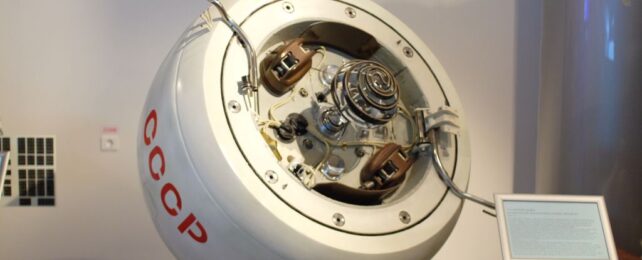A spacecraft that got stuck in Earth orbit after a failed attempt to travel to Venus more than 50 years ago has finally returned to Earth.
Kosmos 482, the last remnant of the Soviet Venus exploration program, plunged on an uncontrolled reentry back into Earth's atmosphere on 10 May 2025, just over 53 years after it was dispatched on its mission on 31 March 1972.
Because Kosmos 482 was built to withstand conditions on Venus – scorching temperatures averaging 464 °C (867 °F), acid rain, and crushing atmospheric pressure – scientists had hypothesized that the 495-kilogram (1,091-pound) lander might at least partially survive atmospheric entry.
However, according to Russia's government space agency, the spacecraft probably fell into the ocean. Which would be unsurprising, given that some 71 percent of Earth's surface is covered by water.
"The Kosmos-482 spacecraft, launched in 1972, ceased to exist, deorbiting and falling into the Indian Ocean," Roscosmos wrote in a Telegram post on May 10.
"According to calculations by specialists from TsNIIMash (part of Roscosmos), the spacecraft entered the dense layers of the atmosphere at 09:24 Moscow time [06:24 UTC], 560 kilometers west of Middle Andaman Island, and fell into the Indian Ocean west of Jakarta."
Astronomer Marco Langbroek of SatTrackCam Leiden, a satellite tracking facility in the Netherlands, says some uncertainty remains about Kosmos 482's final resting place, since the Roscosmos calculations are not based on observation, but modeling.
However, the European Space Agency estimates the time of entry at 06:16 UTC, and the Technical University of Denmark estimates it at 06:40 UTC. The Roscosmos estimate sits nicely in the middle of the two estimates.
The Indian Ocean, Langbroek says, is the most likely place for the spacecraft to have splashed down. We won't know for sure until more data is in.
For now, we'll just have to settle for knowing that it did come down, and didn't land in a place where it's going to cause any problems, which is a nice win for humanity, all things considered.
You can read more about the wild history of Kosmos 482 here.
